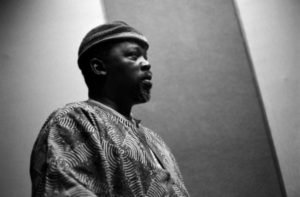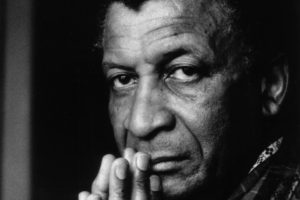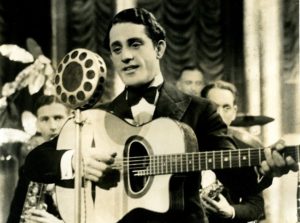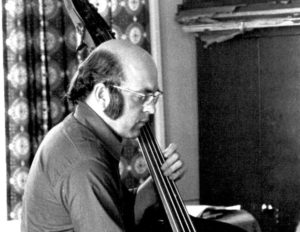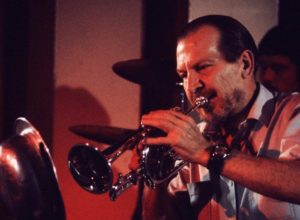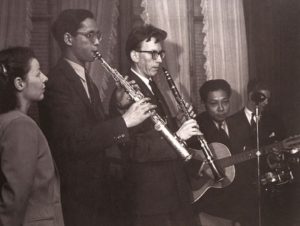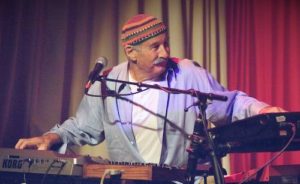Miriam Makeba

Miriam Makeba (1932-2008) was so important as an ambassador for African music and the struggle against apartheid, that her importance in the development of jazz in South Africa is easily overlooked. Makeba was born in a township in Johannesburg to a Xhosa father and Swazi mother. By the time she made her first recordings with The Skylarks in 1956, she had already survived breast cancer and an abusive first marriage. The Skylarks were an all women singing group, with Makeba joined by Abigail Kubheka, Letta Mbulu and Mary Rabotapi. Their music combined a strong jazz element with traditional African singing and a touch of doo wop, via the influence of the Manhattan Brothers, with whom Makeba had also worked (as the only female member) and begun to establish her reputation.
Makeba acted in the 1959 jazz musical King Kong, alongside trumpeter Hugh Masekela. This led to an appearance in an anti-apartheid film Come Back, Africa, which in turn opened up international performance opportunities. While in London, she became friends with Harry Belafonte and moved to New York City shortly afterwards. Her debut show was at the Village Vanguard with Duke Ellington and Miles Davis among the star-studded audience. Her impact was immediate and Belafonte’s label RCA Victor were quick to sign her up. Her self-titled debut album was released in 1960. The World of Miriam Makeba (1964) and a duo album with Belafonte in 1965, were further important milestones in African music reaching international audiences, though her early jazz influences are less important. In 1967, Makeba released what became her biggest hit, ‘Pata Pata’, which featured the Tommy Wolf-Fran Landesman jazz standard ‘Ballad Of The Sad Young Men’.
Makeba’s activism, for Kenya’s independence, the American civil rights movement, as well as anti-apartheid causes, led to South Africa’s white minority government withdrawing her citizenship. A brief period of being stateless was rectified when several countries offered her passports. Her marriage to Black Panther leader, Stokely Carmichael, in 1968, saw her popularity in USA decline for a while.
Makeba had been married to Hugh Masekela for a few years in the mid-1960s, and appears on most of her classic records of the period. They remained close, and she appeared on his You Told Your Mama Not to Worry album in 1976, singing ‘Soweto Blues’, which the trumpeter had written for her. It was Masekela who introduced Makeba to Paul Simon in 1986, whom she joined on his Graceland tour in the following year. The experience spurred her into releasing her first album in almost a decaded, ‘Sangoma’.
In 1991, Makeba’s album ‘Eyes On Tomorrow’ featured Masekela, Nina Simone, and also her former Harlem neighbour, Dizzy Gillespie. As well as playing, Gillespie joins her, singing mournfully on the duet ‘Don’t Break My Heart’, written by Paolo Conte. Makeba’s activism was directed toward numerous charities in the 1990s and 2000s, while she continued to record and to tour. She died after falling ill during a concert in Italy in 2008.
Key Recordings:
Miriam Makeba & The Skylarks (1956-59)
Miriam Makeba (1960)
Sangoma (1988)
